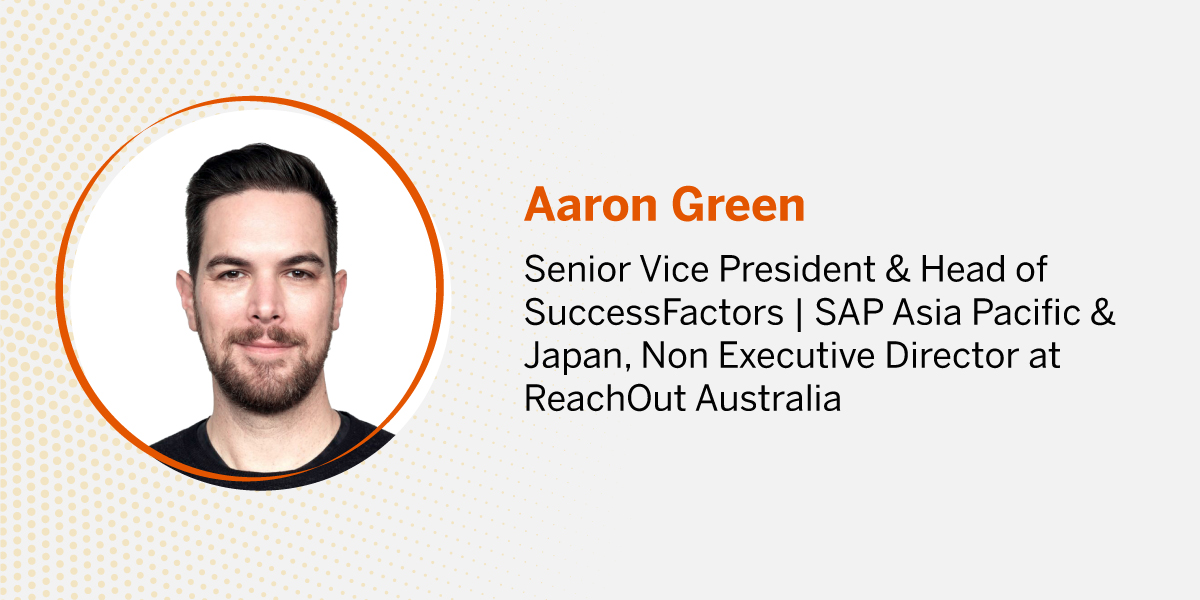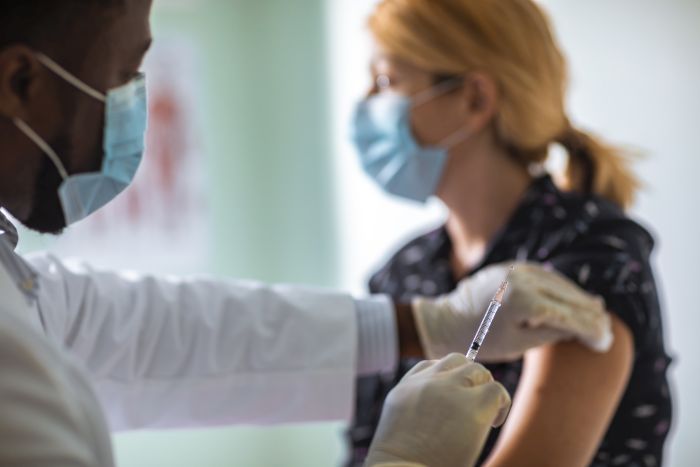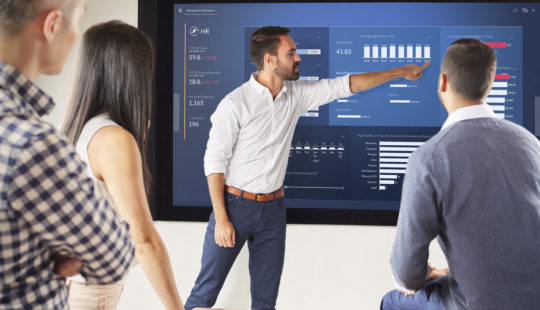The pandemic has rapidly redefined the role of the physical workplace. The temporary shift to remote work has become ‘business as usual’ and now as organisations in the APAC region begin their COVID-recovery, returning to the office is far from normal.
In today’s pandemic-led work environment, the onus is on employers to create a psychologically and physically safe environment where employee well-being is a top priority.
Organisations navigating this ‘new normal’ are at the same time grappling with an evolved set of expectations from their workforce. Across many industries the readiness or need to return to an office is varied. Data consistently shows more than 33% of employees don’t want to return to the office, another third do want to return, and the remaining third want a hybrid mix where they spend some time in the office and some at home.
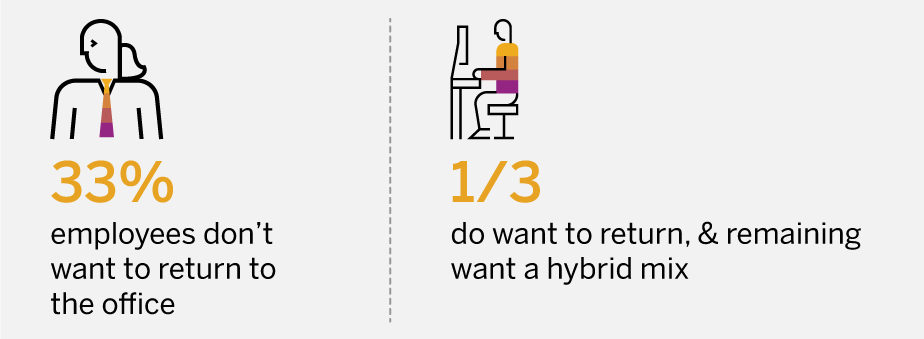
The pandemic has made many workers rethink their careers and examine a different approach to work/life integration. Behind the mask of productivity is an exhausted, burnt out workforce still dealing with the social and emotional upheaval of the last 18 months. This environment is driving a wave of resignations in the US, and it’s likely the ‘Great Resignation’ trend will impact Australia and the Pacific region too.
To retain and attract talent, organisations must change the way they approach mental health – looking beyond ad-hoc wellbeing initiatives to provide real practical tools and support.
Adding another level of complexity for HR is implementing the many legal and compliance processes to protect employees’ health and wellbeing. This can range from communicating a vaccine strategy to the implementation of updated safe workplace policies.
For large organisations, establishing a system to manage vaccination status is crucial for employees to feel safe returning to the physical workplace. Prior to implementing any kind of management solution, it’s important to establish the right approaches and build around them.
Ensuring employees are informed about new vaccination verification policies and potential solutions will help to establish buy-in and reduce friction. Employees will feel more empowered to be involved and provide feedback if they feel like they have agency over the process.
Research by McKinsey shows that organisations with clearer communication (including post COVID-19 working arrangements) are seeing increases in employee well-being and productivity. Workers who feel included in more detailed, relevant communication are nearly five times more likely to report increased productivity.
While today’s complex HR and health hurdles are incredibly difficult to navigate, they can be successfully managed with technology.
Qualtrics’ solution enables organisations to remain compliant with mandates while supporting employee wellbeing and empowering them to be a part of the conversation.
Designed to support a fast and safe return to the office, the Qualtrics Vaccination & Testing Manager automates confirmation of employees’ vaccination status, ongoing test results, and even screening for COVID-19 symptoms – all in one single platform. Employers can access real-time dashboards that provide a confidential employee vaccination status, negative tests, exemptions, and more—enabling leaders to make informed decisions on how to return to work and what guidelines to implement.
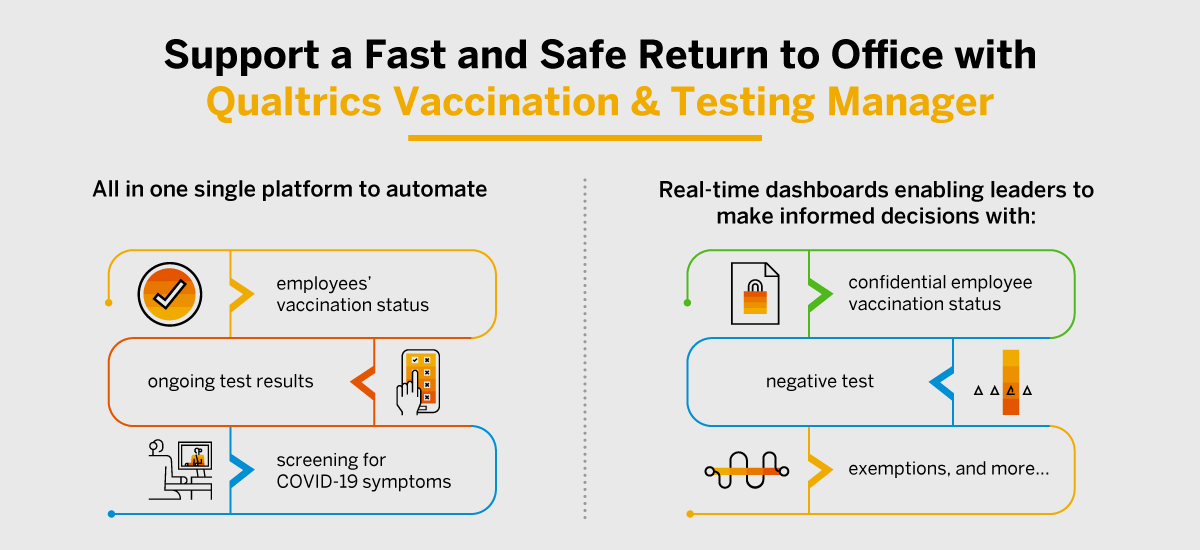
Solution Stack
Whatever your vaccine management solution, what COVID-19 has taught us is that changes happen fast and unexpectedly. Over the next few years, it’s highly likely that vaccination requirements, mandates, and even certifications will change — especially as the virus evolves. A flexible solution with plug-and-play capability can help organisations and governments to respond at the speed required to keep pace with these changes.
This moment is both a challenge and an opportunity for businesses to shift their organisational cultures towards greater empathy and mutual understanding.
Human experience management is truly at the forefront of where we are today in the workplace because employees expect more, and we need to deliver an incredible experience.
A culture of psychological safety is no longer a ‘nice to have’, it’s crucial in the post-pandemic workplace.
